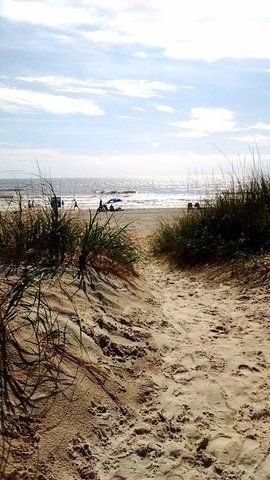
This is a post about extracurricular learning outside of preschool. This is a post about learning through play. This is a post about learning while living, because learning is everywhere and in everything. So, what surprisingly little things managed to creep into the children’s brains this week, while they were not actively learning?Let’s start with this morning, at the beach:We spent the morning bumbling around in the sand. I told the kids why we describe all that soft stuff on the dunes as “sugar sand”. I eyeballed some suspicious people that looked stoned out of their minds, while the children innocently frolicked in the water. The kooks left, so then I had a lovely talk with a German shepherd while his owner waited for me to stop petting it. I drew some arithmetic problems in the sand.And then, the accidental learning really got down to business. We found a beautiful starfish freshly washed up in the surf. The kids examined every square inch of him and we talked about lots of ocean creatures that are disguised by the cloudy blue waves.
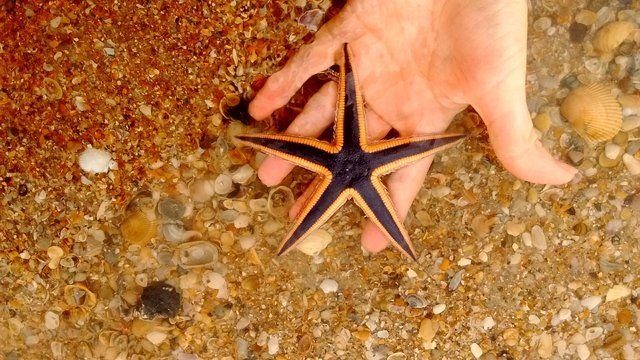
I managed to talk the kids out of taking it home because I was only 95% sure it was dead—it wasn’t stiff yet. That, and those things stink to high heaven.Ever since our litter pickup attempts, the boy has been a very responsible member of the planet. He is frequently finding disgusting pieces of trash for me to carry for miles before locating a trashcan. Today’s most disgusting find was a mystery object composed of slimy flexible plastic and some attached fibers. I didn’t take a picture of that.
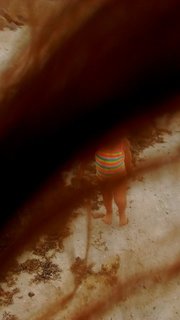
Photography is challenging. <---Here is our wind-blown look. Maybe I’ll bring a hair tie next time.The great outdoors, and especially the beach, is full of these tricky learning opportunities. So, to recap what the boy learned:
1. Starfish are echinoderms that have tiny little hair-like things on their undersides. They are flexible and lovely.
2. The ocean and all its organisms turn normal looking plastic into disgusting things.
3. Photography is hard.Over the last several days my son has been revisiting his love of cooking. He enjoys going through cookbooks partly because he loves to eat, like me, but partly because he gets to read strict instructions to me. He really enjoys structure. He likes all things black and white, like the text parts of a cookbook. So, we commenced going through an old 1950’s cookbook I got from my mother. It has some crazy stuff in it, but we are staying away from the beef hearts recipes, and the ones that list MSG as a separate ingredient. He prefers to focus on the sweets.First up, we had meringue cookies. If you have little people, make meringue. It is the most ingenious thing to cook with children, because you get to explain how when you add air to the slimy egg whites, a magical thing happens. They spring to life as a new substance! And although whipping up egg whites to stiff peaks is not exactly hard, I always find glory in it. I also like to put the bowl upside-down over my son’s head to watch the reaction. He giggled. So, besides witnessing the change the air caused, there is also the dexterity practice that is required to pipe the meringue into pretty little swirls. And then, he got to witness the substance change into a true solid once baked.
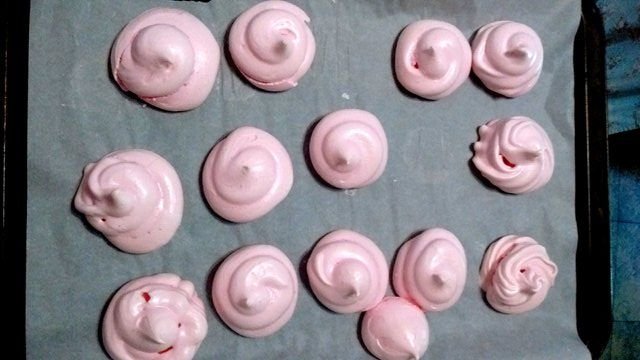
This stuff is the adult-appropriate version of cotton candy. I ate so many of these.
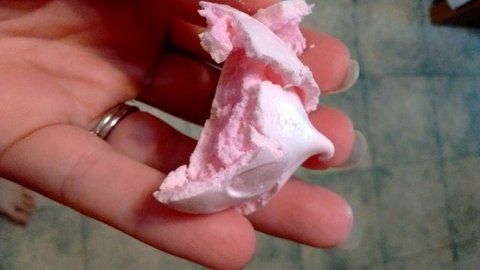
Lessons:
- Forcing air into egg whites can change their structure (the boy is a bit young to take this any further).
- It is tricky but fun to aim, turn, and squeeze in a coordinated manner to operate the piping bag.
- Pink cow patties are delicious.
Then we moved onto recipe number two as of yesterday. This one is your run-of-the-mill drop cookie recipe. I showed him how to make the substitution I use for replacing squares of chocolate. I also explained to him the definition of “substitution”. He practiced cracking an egg. We had an in-depth discussion of fractions, to make an effort to understand what is a ½ cup and ¾ cup. When it was all said and done, he got to get his hands dirty while frosting them.
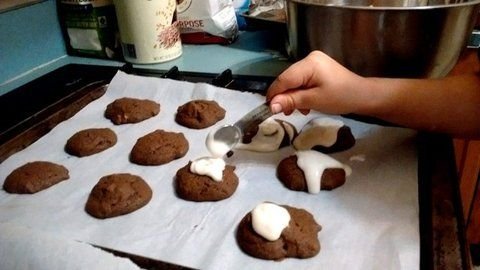
After we finish each recipe in this book we are notating when we made it and how we liked it. The boy, with a mouthful of his second cookie, advised that they were just “okay”. My husband, mouthful as well, mumbled that he is a hard boy to please, and I guess so.Lessons:
- An understanding of the definition and an illustration of the word “substitution”.
- A vague understanding of fractions.
- The development of standards, and a belief in holding them very, very high.
Now that I’ve journaled these lessons for the boy, I’m going to eat some of the fruits of his education and try to untangle this beach hair.
Source
Plagiarism is the copying & pasting of others work without giving credit to the original author or artist. Plagiarized posts are considered spam.
Spam is discouraged by the community, and may result in action from the cheetah bot.
More information and tips on sharing content.
If you believe this comment is in error, please contact us in #disputes on Discord
TIP: Users plagiarizing the content of other Steemians make great addition to @cheetah blacklist.
Downvoting a post can decrease pending rewards and make it less visible. Common reasons:
Submit